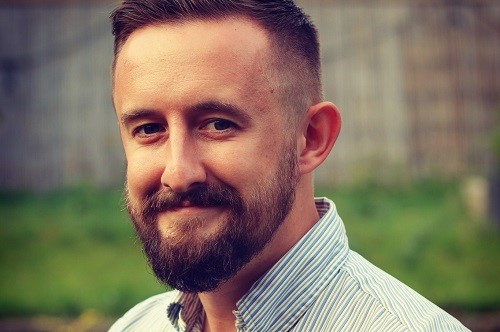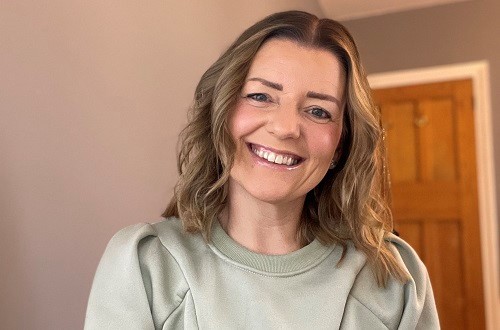Experts were invited to share insights into employee and organisational wellbeing at British Safety Council’s third annual Wellbeing Conference on 18 April.
News
Wellbeing Conference 2023: highlights from an amazing day
Delivering the opening keynote, Jonathan Gawthrop, executive director of wellbeing sustainability & assurance at EMCOR UK, considered how we define wellbeing. It encompasses our ‘physical, mental and social state’, but this definition has only ‘come to life’ in the past six years.
Turning theory into practice is more complicated he suggested – the organisation’s purpose is key to a healthy culture. ‘If your people [and customers] can’t ‘taste and feel’ your purpose, then it "isn’t authentic,” he said.
 Marcus Herbert: "Understanding staff better is [key to making wellbeing work in your organisation]"
Marcus Herbert: "Understanding staff better is [key to making wellbeing work in your organisation]"
With experience in auditing in high hazard industries including the petrochemical sector, Dr Audrey Fleming, British Safety Council’s wellbeing health & safety auditor advocated going on site and winning people’s trust to get a true account of their wellbeing at work. “Questionnaires give you the what, but not the why,” she stated.
Colleague, Marcus Herbert, head of wellbeing at the British Safety Council, shared findings from holding workshops for SMEs for the Keep Thriving wellbeing campaign. He said many organisations which applied to the sessions shared the same problems, including low employee engagement (28 per cent), not enough time to spend on wellbeing (29 per cent) and changes in the business (19 per cent). However, only 3 per cent said that understanding staff better would help to improve wellbeing and yet he said this is crucial for success.
Is hybrid working Heaven or Hell? This was the question put by Bex Moorhouse, director of corporate wellness consultancy Invigorate Spaces Ltd. Compelling reasons for hybrid include more work / life balance, fewer cases of depression and the opportunity to take ‘micro breaks’. Full time office workers are more likely to experience burnout, in part due to long commutes, but also presenteeism.
 Bex Moorhouse: "Too many companies look over [their shoulder] at what others are doing."
Bex Moorhouse: "Too many companies look over [their shoulder] at what others are doing."
The downsides of hybrid working include isolation and reduced feelings of company loyalty. To make hybrid working work, she urged employers ‘define the type of hybrid you will operate based on organisational values’. “Too many companies look over [their shoulder] at what others are doing, work out what is best for you,” she advised.
It’s not always about winning, but it is for Chris Armstrong, who heads up wellbeing at Mercedes-AMG Petronas’s Formula One team. At F1, sustaining championship-winning capabilities of its people is key, so they put emphasis on interventions like physical health assessments, nutrition for performance and strategies for recovery. His tip was to "really think what’s important [in your company]. Start small, and build [from there].”
Dr Julie Riggs, senior head of education at the British Safety Council, spoke of the impact of indoor air quality on the brain and wellbeing. She urged for more research into the issue and for more public discourse and engagement.
Finally, Sarah Meek, managing director of Mates in Mind closed the day with a talk on the ‘maturity pathway’ towards improved mental health. Crucially, this was about preventative action rather than tertiary, or reactive measures. A poll during the talk showed that a third of attendees did not proactively mitigate exposures to work-related stress, which showed room for improvement. “Culture and policies need to [align] or employees will be confused,” she added.
The online event was chaired by Stephen Haynes, British Safety Council’s director of wellbeing. “What an amazing day,” he said in closing the sessions. Authenticity was the word that stood out he said: “How we make [our approaches] land and how do we make them genuine [is key].”
NEWS

Calls for more mental health support for NHS workers grow amid burnout fears
By Kerry Reals on 12 April 2024
Calls for the reinstatement of UK government funding for the provision of mental health and wellbeing hubs for NHS workers have amplified, as a new survey by the UNISON union warns that the threat of burnout could compound healthcare staff shortages.

Assault of retail workers to become a standalone crime in UK shoplifting crackdown
By Kerry Reals on 10 April 2024
Retailers have welcomed a UK government decision to make assaulting a shop worker a standalone criminal office in England and Wales, but civil liberties groups have criticised plans to ramp up the use of facial recognition technology in town centres to help catch shoplifters.

Teaching union calls for HSE to include suicides in work-related deaths figures
By Kerry Reals on 03 April 2024
Teaching union NASUWT has reiterated calls for suicides to be included in the Health and Safety Executive’s (HSE’s) annual figures on work-related deaths, and is calling for suicide prevention training to be provided for all school leaders.


